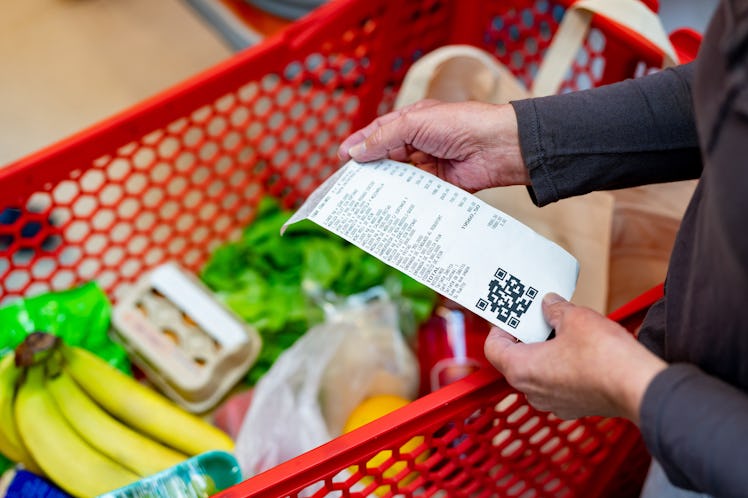There's One Way To Save $500 A Year On Groceries — But You May Not Like It
Inflation has started to ease — but that doesn’t mean your grocery bill feels any better. There’s one hack to cut your costs that you may low-key hate.

In an era when the rising costs of groceries continue to strain household budgets, finding ways to cut back on the monthly food bill isn’t easy. Between January 2022 and January 2023, the cost of groceries rose by 11.3% on average, which saw egg prices soar by 70.1%, flour up 20.4%, a loaf of bread now 14.9% pricier, and chicken was up 10.5%.
Although inflation has started to ease, families are still dealing with the high cost of food. However, one new study has found one way to cut down on your grocery bill — unfortunately, it might not be the easiest money-saving solution for families whose kiddo only eats chicken nuggets.
According to an analysis from the Physicians Committee for Responsible Medicine published in JAMA Network Open in September, going vegan could save you about $500 per year — or 16% off your grocery bill.
For the study, 3,115 people screened by telephone participants were randomly assigned to either be in the vegan group or a controlled group. Those in the vegan group were asked to only eat a low-fat vegan diet. They were restricted to mainly eat grains, legumes, fruits, and vegetables, while the control group was asked to eat their typical diet. In both groups, the research team did not ask participants to limit food costs or calorie intake.
Participants were asked to complete dietary records both at baseline before the study began and again during week 16. Their record included a 3-day look back at their food intake, including two weekdays and one weekend day. Their dietary record was analyzed by a registered dietician based on the Nutrition Data System for Research, the paper explains.
Participants were also asked to record the cost of their meals, which was then linked to the U.S. Department of Agriculture Thrifty Food Plan’s database of national food prices. Data collected from participants regarding food costs underwent two individual reviews to double-check the collected information.
The final analysis included 223 participants who completed all aspects of the study, including the final diet records. And after the data was collected and analyzed, it found switching to a vegan, plant-based diet saves $500 a year on groceries.
“Total food costs decreased in the vegan group by 16%, or $1.51 per day, compared with no significant change in the control group,” the report summary explains. “This decrease was mainly attributable to savings on meat, -$1.77 per day, and dairy, -$0.74 per day. Changes in purchases of other food groups (e.g., eggs and added fats) also contributed to the observed savings.”
The money saved by reducing meat and dairy intake made up for the additional food costs for vegetables, fruits, grains, and legumes.
According to GOBankingRates, the average U.S. household spends approximately $5,259 eating food at home each year, citing 2021 data from the Bureau of Labor Statistics. However, with food-at-home prices increasing 11.3% in 2022, the average figure is likely higher now. Still, this breaks down to approximately $578.49 per month, and with this study showing a savings of $500 a year, cutting dairy and meat saves approximately a full month of food costs, which is significant for families.
Even if you don’t go fully vegan, there are benefits to be captured here. Research has shown that swapping out red meat for more leafy greens and vegetables may benefit your health and the health of your kids. And if you opt for something like the Mediterranean diet, which is more varied than the vegan diet, you’ll still save money — without cutting out the, let’s say, occasional chicken nugget. A previous study found the Mediterranean diet, full of veggies, fruits, healthy fats, and whole grains, is cheaper by $10,972 per year for a family of three and $14,820 a year for a family of four.